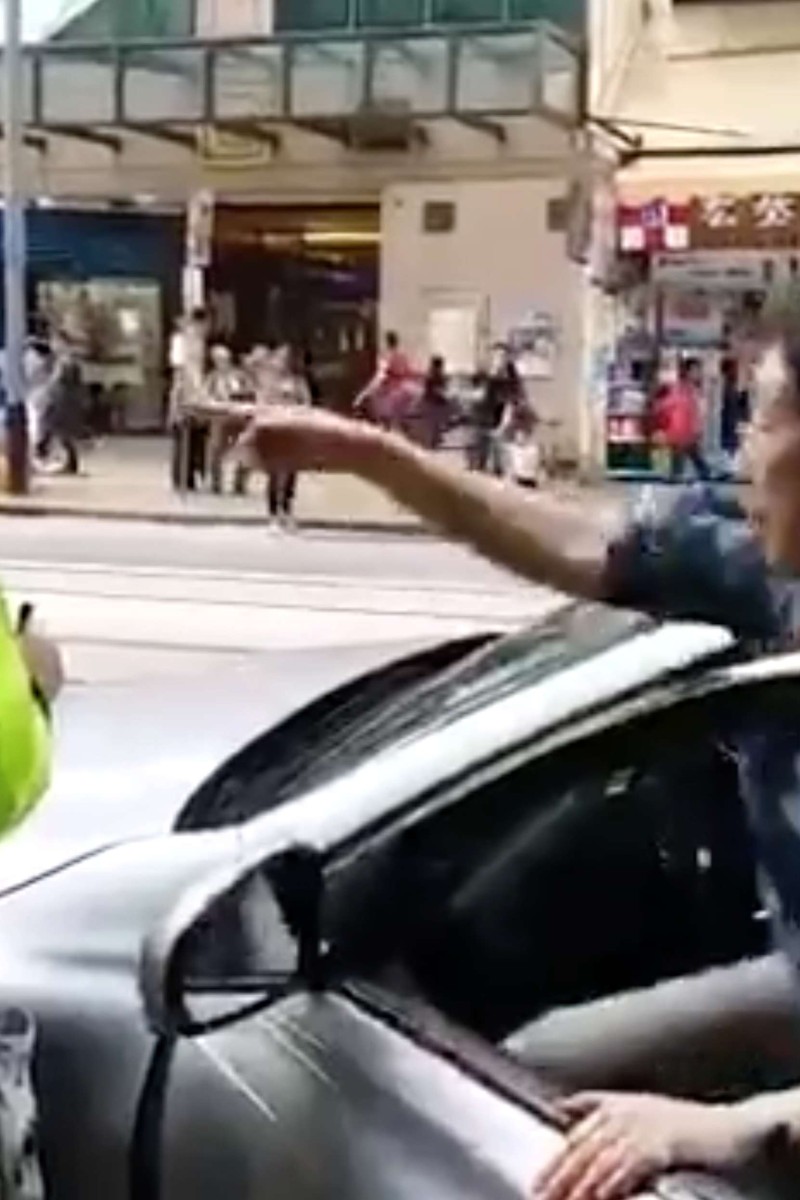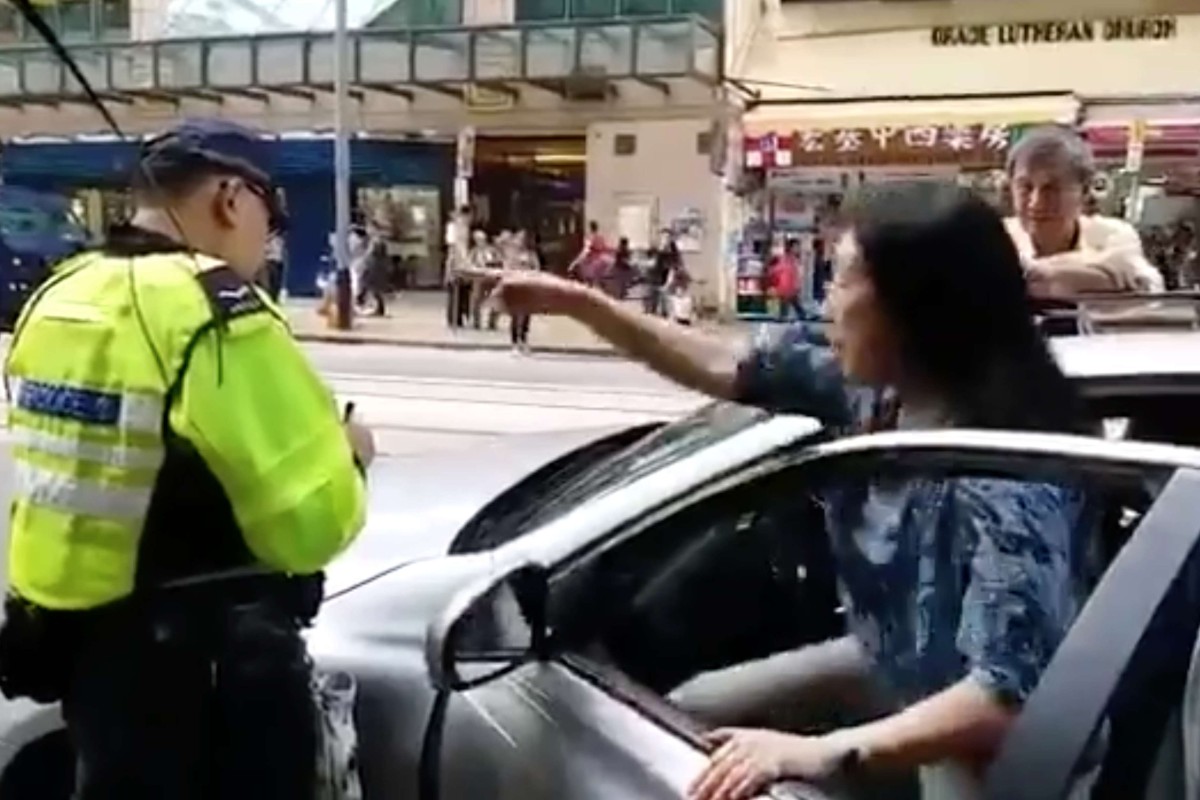
Hong Kong police unions ask for law to make it a crime to insult an officer
Mixed reaction from students as police officers write to chief executive asking him to introduce new law
 Police must keep calm even when people are treating them with disrespect. Would a new law help?
Police must keep calm even when people are treating them with disrespect. Would a new law help? Students have mixed views on a proposed new law that would make it illegal to insult the police.
The convictions of seven policemen last month for beating pro-democracy activist Ken Tsang Kin-chiu during the Occupy protests in 2014 has reignited a push to make insulting a police officer a crime. People in favour of the law say police are already under pressure, and need more protection. Some countries like Singapore, Australia and France have had laws against insulting police.
But others warn that the proposed law would make tensions worse, and could limit freedom of expression.
The Security Bureau said it was not considering a law change, but two police unions have written to Chief Executive Leung Chun-ying urging him to make it a crime to insult the police.
When the seven officers attacked Tsang, Hong Kong was already three weeks into the 79-day Occupy protests. With protesters challenging their authority, officers were at “breaking point”, a police source said. Shortly before the beating, Tsang poured liquid onto other police officers, which later got him convicted of assault.
Hong Kong Baptist University student Jessie Pang, 21, who took part in what became known as the Umbrella Revolution, said the city should not criminalise insults against police as that would limit freedom of speech and expression. “Police officers have guidelines on how to professionally deal with insults and improper language,” she says. “It’s never easy to define the meaning of ‘insult’, so I’m afraid the law will be misused by police. The convictions of seven policemen for assaulting Tsang was only an example of how they abuse their power.”
But Shahryar Naeem, 19, from the University of Hong Kong disagrees, as insults are an inappropriate way to express one’s opinions. He says people shouldn’t say or do anything that challenges police authority, as this only makes their jobs more difficult.
“How do you feel if someone swears at you while you are performing your duties?” asks Naeem. “They should choose to protest in a more respectful manner. We should learn from other countries, such as Singapore, to enforce stricter laws and punishments against insulting police. They work very hard to keep social harmony while enforcing the law at the same time.”
